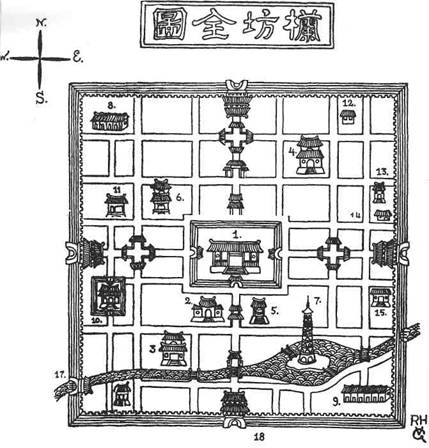In The Phantom of the Temple, Dee purchases an antique box as a birthday gift for his First Lady. However, inside it is an odd note that sounds as if someone was being held prisoner in a nearby deserted temple. Soon, we have three mysteries to solve again. A local girl is missing; could she be the source of the note in the box? What's going on with a local painter who's behaving oddly? And where are the fifty gold bars, stolen from an Imperial Treasury courier?
This is late van Gulik, published in 1966, but still good. As always, he gives us a good look at Chinese history and culture; in this case, the deserted temple was a haven of Tantric Buddhism, which apparently was not popular among Chinese officials. Also, we get the best glimpse ever of Dee's wives, and the Third Wife gets her moment in the sun, actually doing a bit of detecting work for her husband.
But it's still Dee's show, and he's definitely in charge. He's calm, resourceful, and observant as always, although we're not always given a look into his thought processes until the end of the story.
Two short stories were also set in Lan-Fang. In "The Coffins of the Emperor," Dee is visiting a neighboring district during a military crisis, as a Tartar army is getting ready to invade China. A respected general has accused a respected official of treason, and of hiding armaments in the coffin of a Crown Prince buried in a nearby tomb; can Dee figure out if it's true without actually opening the coffin and committing a high offense himself? Also, there's a case of a captain accused of murder; he claims to be innocent of strangling another officer's wife, but is he really? And who is the culprit? It's decent Dee, and remarkable in my memory for Dee's plea for clemency at the end for a gay murderer, stating that nature directed him one way, but his family forced him into another, and he couldn't cope with the results, and allowing him to commit suicide. Dee's humanity shines in that moment.
The other is a very humane story, "Murder on New Year's Eve," when Dee encounters a young boy wandering the streets, and when trying to return the boy to his family, finds that the parents have quarreled and there's signs of a possible murder. All ends happily, for a change; it's really almost a comedy rather than a mystery.
 |
| Van Gulik's map of Lan Fang. |




No comments:
Post a Comment